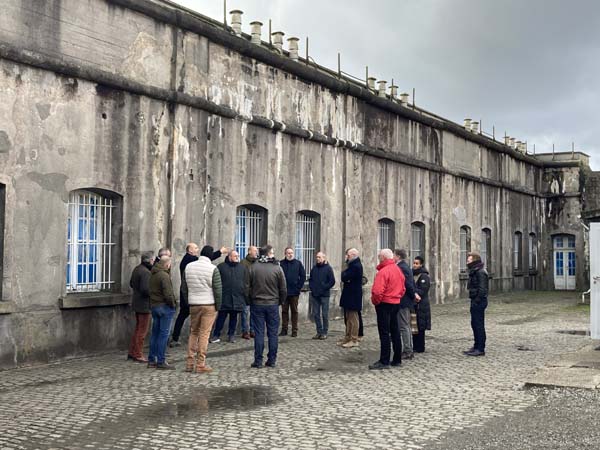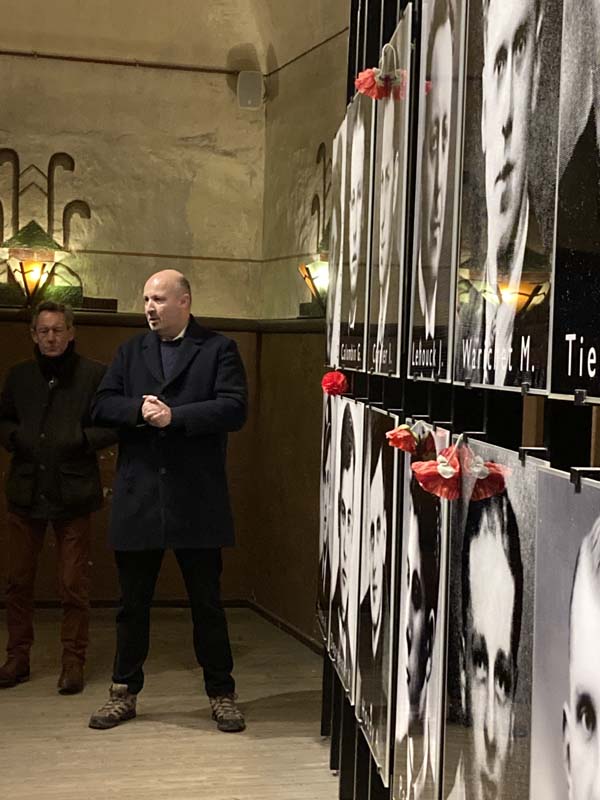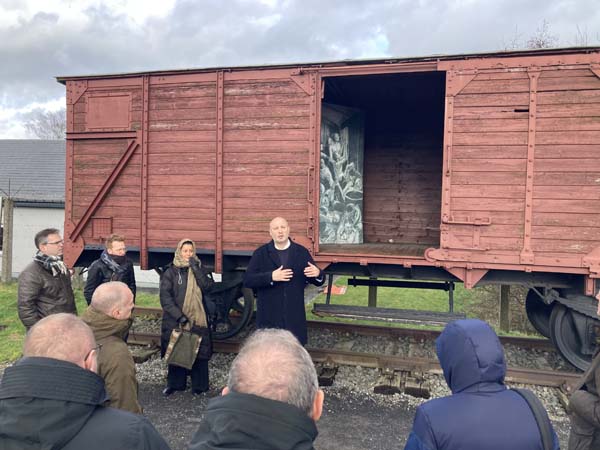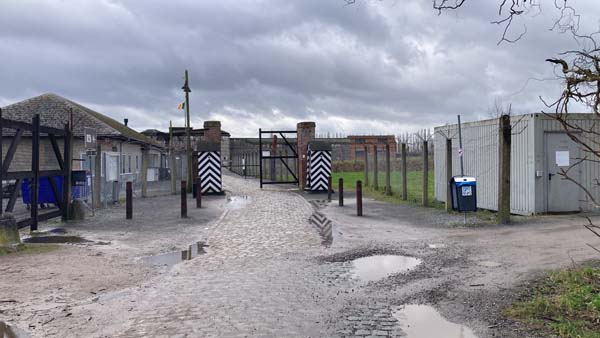House of European History and Fort Breendonk: an essential duty of remembrance
As part of the visits of the High Studies for Security and Defence (HSSD) course, the participants (auditors) had the opportunity to explore two emblematic sites: the House of European History and Fort Breendonk. A day characterised by reflection and remembrance, essential for decision-makers involved in security and defence issues.
Understanding European history to better anticipate the future
The day began at the House of European History. A project initiated by the European Parliament, this museum opened its doors in 2017. It recounts the major stages of European integration, highlighting the decisive events and challenges that have shaped the European Union. Thanks to permanent and temporary exhibitions, collections of historical objects and educational programmes, this visit gave the auditors a better understanding of the evolution of Europe and the importance of cooperation between states.
Fort Breendonk: a striking place of remembrance
After this immersion in European history, the HSSD delegation visited Fort Breendonk, a site steeped in history and memory. Located near Antwerp, this fort served as a detention centre and Nazi transit camp during the Second World War. Guided by Major Luk Sanders, the auditors explored the site, which has remained largely in its original state, making the emotional impact even more powerful.
The fort bears witness to the dark years of the occupation, when violence and repression descended upon thousands of prisoners. The visit was a powerful moment of reflection on the values of freedom, resistance and vigilance in the face of authoritarian excesses.
A duty of remembrance for those involved in security and defence
For the HSSD auditors, who have decided on strategic responsibilities in the field of security and defence, this visit had a fundamental objective: to remind them that remembrance is an essential element in the construction of security policies. Understanding the mistakes of the past is vital to prevent them from happening again and to preserve the principles of democracy, human rights and sovereignty.




